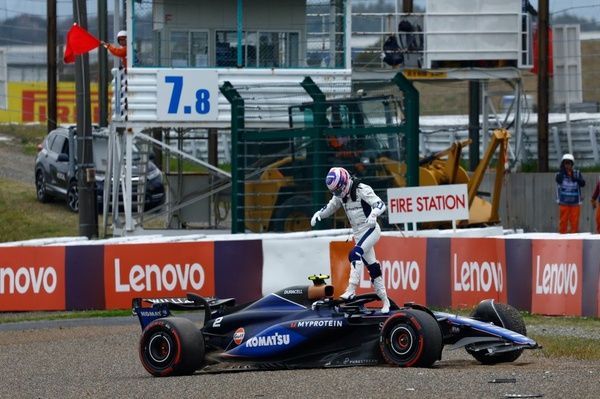Can F1 save its cash-strapped teams under new owners?
Formula 1's new owner Liberty Media has stated it wants to reduce the huge income disparity between teams and improve competition, but can it really change the way F1 works?

F1 Group chief Chase Carey and his colleagues have used comparisons with major US sports leagues, with Liberty CEO and president Greg Maffei recently saying "all parties understand the need for a competitive race environment and, like the NFL on any given Sunday, an opportunity to have teams come from behind and win, not have the usual players.
"It's not in anybody's interest to have a non-competitive, non-interesting, non-exciting sporting event."
Carey himself used a baseball analogy at the FIA World Motor Sport Council.
"He used the example of the New York Yankees, who apparently have very rich owners, who could spend unlimited sums of money to ensure that they won every time," WMSC member and Force India boss Vijay Mallya told Autosport.

"He said 'that's not competitive sport'. If I read into that, he meant everyone big or small should have an equal chance to compete."
Ferrari, Red Bull, McLaren, Mercedes, Williams and Renault currently all receive varying degrees of additional funding beyond the money paid out based on championship finishing position, under deals negotiated with Bernie Ecclestone.

Force India and Sauber therefore joined forces to pursue the EU commission complaints currently progressing slowly through the system.
Maffei hopes inducements such as shares in the revamped F1 Group will help but he admitted: "There are no guarantees of that.
"Understandably, teams that are being paid particularly well today will be reluctant to give those payments up."
Liberty is also keen to tackle expenditure, potentially via a budget cap, on the basis that if costs can be kept down, it will be easier to address the income issue.
Ross Brawn has been tasked with investigating the practicalities.
Carey and his colleagues have met with the teams both individually and collectively, and got a positive response from Sauber and Force India.
"Everything Chase Carey has said is music to my ears," said Mallya.

"These Americans understand how to promote sport, they understand how important stability of the sport is.
"They are the owners of the Atlanta Braves themselves, so they understand the importance of how franchises or participating teams should be on a stable footing.
"It's going to be a very, very different approach to what Bernie had."
Sauber boss Monisha Kaltenborn added: "Very clear statements that the new owners want to support the smaller teams, and that private teams are a part of F1, and are very much a core part of it - that's very encouraging.
"A cost cap, or a budget cap, in whatever way, it's coming in. They're looking at the engine, and making it affordable to everyone.
"With Ross there's someone in there who knows all different sides from a team's perspective, a big team, a small team, a struggling team, a successful team, or a very strong team financially.
"That helps a lot because he can really understand where people are coming from. He also knows what you can do on the technical side."

Mallya remains hopeful something can finally change, although he also hinted that F1's new owners could fix the situation even if the big teams don't give up their extra income.
"Bernie wanted to take it away from the big teams and give it to the small teams, which the big teams objected to," he said. "That's not the only way.
"The commercial rights holders could also dip their hands into their own pockets and ensure the financial sustainability of the smaller teams."
The EU action could yet force the situation.
"Over the past two years we've been carrying a battle fundamentally on our own," said Force India deputy team principal Bob Fernley.
"There are two ways of doing it. One is negotiation, which is where Liberty are moving.
"Two is through enforcement, which could come through an EU investigation.
"What we've said to Liberty is that we will support them 100%, but we will robustly follow the programme that we are bringing in place with the EU, and other means if necessary."
Be part of the Autosport community
Join the conversationShare Or Save This Story
Subscribe and access Autosport.com with your ad-blocker.
From Formula 1 to MotoGP we report straight from the paddock because we love our sport, just like you. In order to keep delivering our expert journalism, our website uses advertising. Still, we want to give you the opportunity to enjoy an ad-free and tracker-free website and to continue using your adblocker.















Top Comments